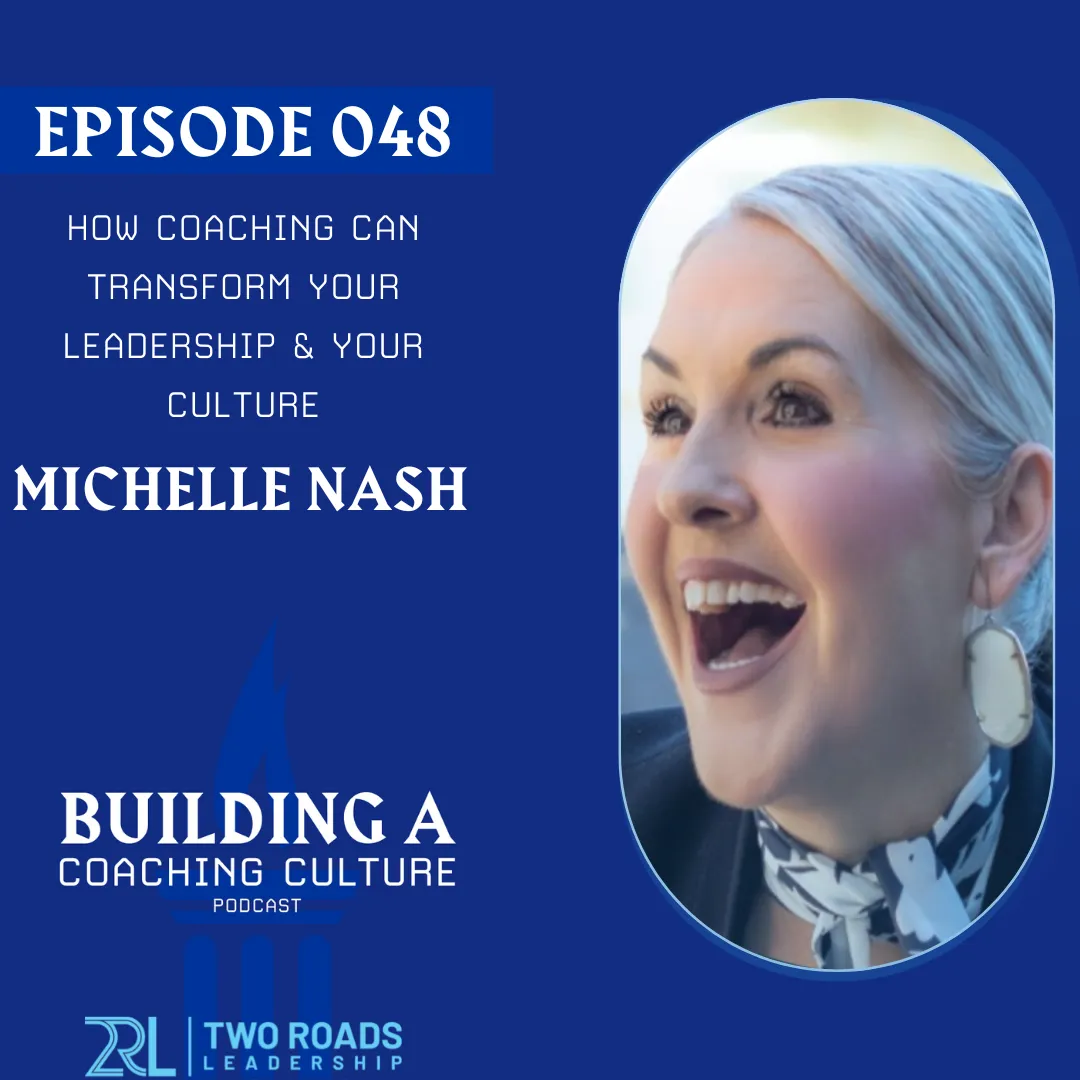How do coaching skills translate into the workplace?
And how do you start creating a coaching culture in your organization?
This week we go back to the archive to share this conversation with Michelle Nash from earlier in 2022. Michelle Nash is the director of talent management and leadership development at PZI International and joins us to share her coaching journey. She talks about how coaching changed her, the importance of vulnerability, and so much more!
In this episode you'll discover:
- Why everyone needs a coach
- The importance of vulnerability in coaching and leadership
- How to start implementing a coaching culture
- What happens when you have a coaching culture
Building a Coaching Culture is presented by Two Roads Leadership
Produced, edited, and published by Make More Media
Quotes
"We all need a coach." - Michelle Nash
"People want to show up into organizations and industry to be contributors, not just to show up and do a job, but to really have meaningful purpose and to contribute." - Michelle Nash
"A leader is important, but a great leader knows it takes a team to deliver." - Michelle Nash
"You're not there to solve their problems. You're there to empower them to come up with their own solutions." - Michelle Nash
Episode Links
Michelle Nash
Director of Talent Management and Leadership Development at PZI International
Social Media
J.R. Flatter
Founder of Two Roads Leadership
Lucas Flatter
Books
Dare to Lead - Brene BrownThe Culture Code - Daniel Coyle
The Lincoln Highway - Amor Towles
Resources
2RL 4 day Coach Certification Bootcamp
2RL ICF-Approved Coach Certifications and Trainings
Transcript
Automatic Transcription - please excuse any errors

